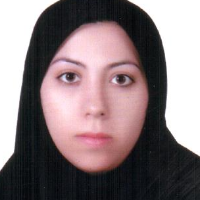The Effect of Gamification in Flipped Classroom on the Critical Thinking of Female Child Trainer Students in Yazd Technical and Vocational College
The purpose of this study was to investigate the effect of gamification in a flipped classroom on the critical thinking of child trainer students in the female Technical and Vocational College in the city of Yazd during the COVID-19 pandemic.
The study utilized a quasi-experimental design with a pre-test and post-test control group. The statistical population consisted of 150 students in the field of child trainer at Yazd Girls' Technical and Vocational College, with a sample size of 56 students selected randomly from two classes. Prior to the intervention, a pre-test was administered to both groups, and the experimental group was taught using a gamified flipped classroom method while the control group was taught using a traditional flipped classroom method. A post-test was administered to both groups after the intervention. The Ricketts' critical thinking questionnaire was used to collect data, and analysis of covariance was used to analyze the data.
The results of the analysis (F=657.078, p<0.05) indicate that gamification in the classroom significantly increased critical thinking, thereby rejecting the null hypothesis and supporting the hypothesis that the independent variable in the test group increased students' critical thinking. Additionally, the test results on the three components of critical thinking show a significant increase (p<0.05) in the critical thinking of the students in the test group.
Value:
The findings of this study suggest that a gamification-based flipped classroom had a significant effect on students' critical thinking compared to a conventional flipped classroom.
-
Identify and explain the context components affecting the establishment of an entrepreneurial university (by a Meta Synthesize approach)
Seyedeh Jamileh Modarresi Saryazdi, Abbas Abbaspour, *
Journal of Educational Planning Studies, -
Identifying the Strategic Drivers of Entrepreneurial University by a Meta-Synthesize
S. Jamileh Modarresi Saryazdi, Abbas Abbaspour, *
Karafan,


